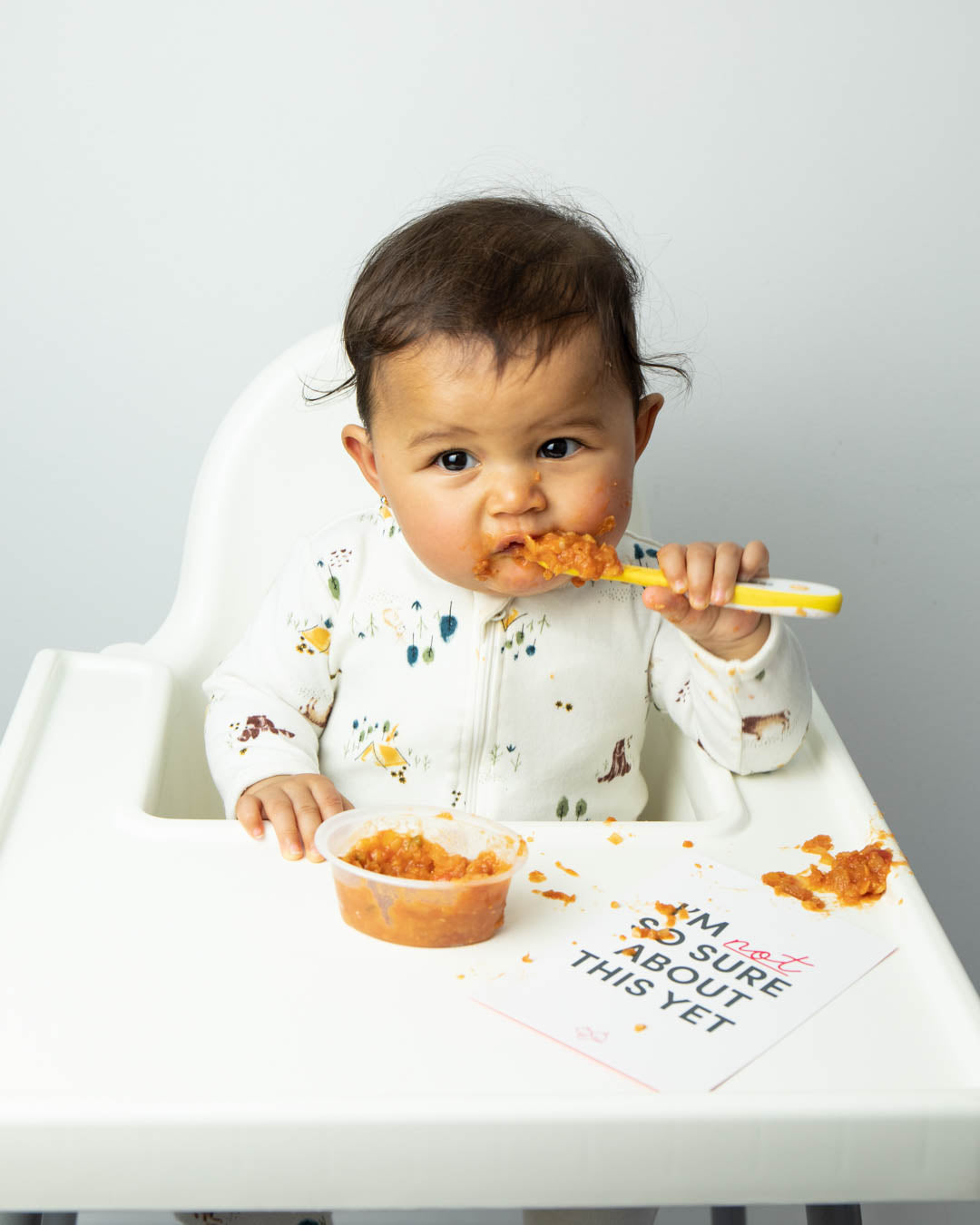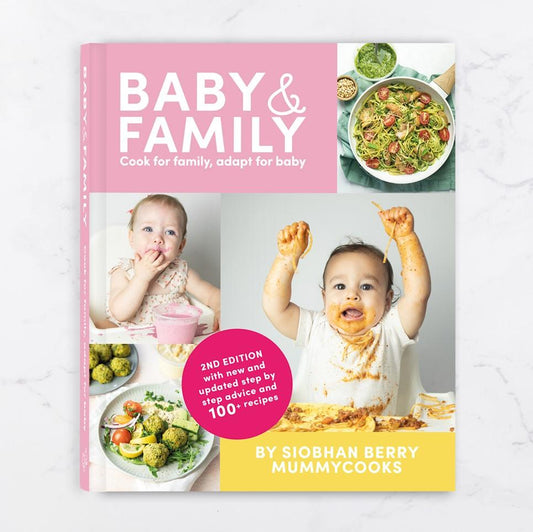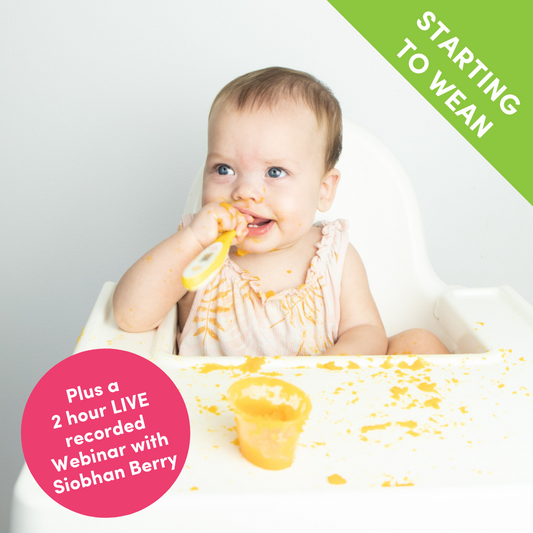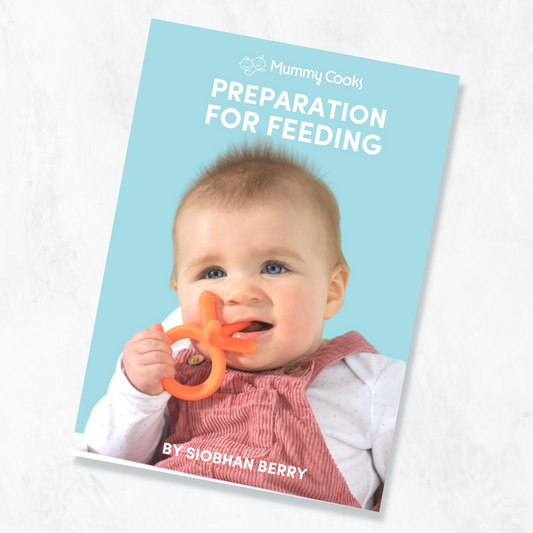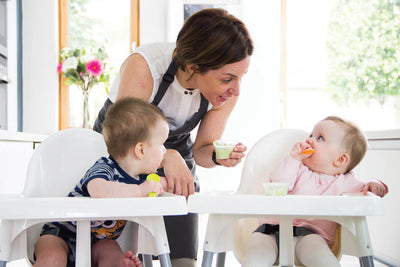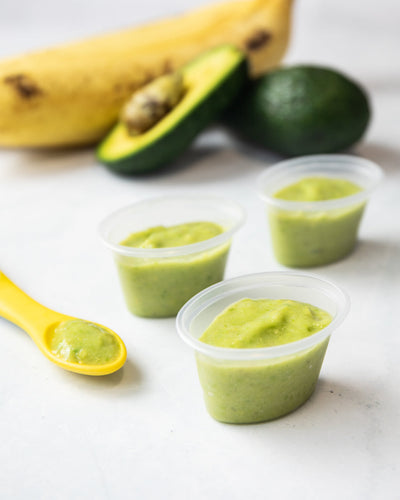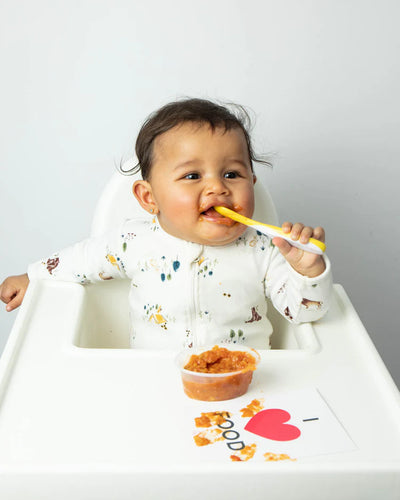Knowing when to start weaning your baby can be very confusing for parents, especially with your first baby. Although there is a lot of conflicting information around the subject, new research shows that delaying starting to wean until your baby is six months is a little too late. I believe this is very true and you need to give your baby at least two weeks to get used to solids. This will ensure that from six months your baby can move quickly, ready for the different stages of weaning.
According to the recent guidelines on best practice for infant feeding in Ireland;
'The introduction of solid food to an infant’s diet should take place at about 6 months of age. The recommendations for the age of weaning are the same for both breastfed and formula fed infants. The exact timing to begin the process should be driven by the unique need of the individual infant'.
We are therefore none the wiser!
You should not start weaning before 4 months (17 weeks) because:
- You may reduce the volume of breast and formula milk taken, too soon.
- Your baby’s coordination may not be developed enough for proper head control to allow sucking and chewing of solid food.
- Babies at this stage don’t usually like different tastes and textures.
- Your baby’s system is simply not ready at this stage and weaning could increase the risk of allergies and illness.
- There is evidence to show giving energy-rich foods too soon may result in your baby becoming overweight.
Delaying beyond 6 months can have the following effects:
- Your baby’s increasing energy and nutrient requirements will not be met by milk alone beyond 6 months of age.
- Your baby needs to get used to the foods before he/she actually needs it.
- Delaying weaning also means the process may prove much more difficult. This is because babies are usually most willing to try new foods and flavours when they are between four and six months old.
- Babies weaned later are less likely to go on to eat a varied diet.
- Babies weaned later may not advance to family foods until after their first birthday.
So while the idea that full breastfeeding for about 6 months is a desirable goal, the reality is quite different. Dr Gillian Harris, Consultant Pediatric Clinical Psychologist at the Children’s Hospital, Birmingham, feels strongly that starting solids at 6 months is cutting things a bit fine. She says:
‘I believe that introducing solids between 4 and 6 months is important. There is no evidence that it increases the risk of allergies. Babies are least neophobic (afraid of new foods) at this age. The evidence shows that giving lots of different tastes very early on – and just a taste is fine – increases the child’s readiness to accept a wide range of foods later.’
At Mummy Cooks, we believe parents should aim to start weaning just before 6 months. This gives your baby a chance to build up to what is ahead at six months of age. I believe the best time is between five or five and a half months, starting slow for two or three weeks. At 6 months, we would then encourage introducing lots of variety into your baby’s diet. Include herbs and spices as well as a wide variety of fruits, vegetables and grains. It’s all about getting baby used to different tastes and textures, making them less likely to become a fussy eater later on.
Signs your baby is ready to start weaning
- They sit up well without support.
- They’re developing a ‘pincer’ grasp.
- They are starting to demand feeds more often.
- They have lost the tongue-thrust reflex and don’t automatically push solids out of their mouth.
- They are a keen participant and eye up your food at meal times.
- They’re ready and willing to chew.
- They are waking up during the night rather than sleeping through the night.
First tastes
The very first foods must be easy to digest. The texture needs to be runny and smooth, with no lumps. You can achieve this by cooking your fruit or vegetables for a little longer than your own. Add a little of the reserved water or baby’s milk to make it even smoother.
Foods to start
Start by offering very smooth, runny purées like apple, pear, carrot, sweet potato, potato or butternut squash to your baby. This Carrot Puree is perfect to start. Store it in portions using the 4-6 Month Weaning Pots from the Starter Weaning Set for a quick and easy weaning meal. If your baby doesn’t like the taste or texture of the spoon, try putting the food on your (clean) finger and letting them suck it off.

Finger Food
Finger food should be introduced from as early as six months to get your baby used to feeding themselves. They may not master this until 7 months as they begin to pick up objects with their thumb and forefinger. But don't be afraid to let them get messy! Remember teeth are not essential for good nutrition during weaning, and babies will use their gums to chew lumpier food. These Sweet Potato Tots are a perfect baby led weaning finger food from 6 months. The sweet and savoury bites are perfect to batch cook and freeze in 9-12 Month Weaning Pots from the Starter Weaning Set.
Best time to start
The best time to start is usually during the lunchtime feed, as babies are less fussy. This also gives you the rest of the day to keep an eye out for any reactions. Until recently, the advice given was to introduce each food separately, waiting three days before introducing another new food. However, unless there is a history of allergy or you are concerned about your baby’s reactions to a certain food, there is no reason why new foods can't be introduced over consecutive days.
Tips
- Cutlery: Let your baby attempt feeding themselves with a spoon or their hand. Place a small bowl of food in front of your baby so they feel they have control and enjoy the experience more.
- Be careful not to force force food into your child’s mouth. It may take up to 25 attempts before a new taste or texture is accepted!
- Variety is essential: At Mummy Cooks we encourage parents to introduce lots of variety into their baby’s diet early on. Include lots of herbs and spices, as well as a wide variety of fruit, veg and grains throughout the first year.
It is all about getting your baby used to different tastes and textures, so they are less likely to become a fussy eater later on. Check out our Baby and Family Recipe Book for lots of baby and weaning-friendly recipes PLUS expert advice, tips and tricks.

